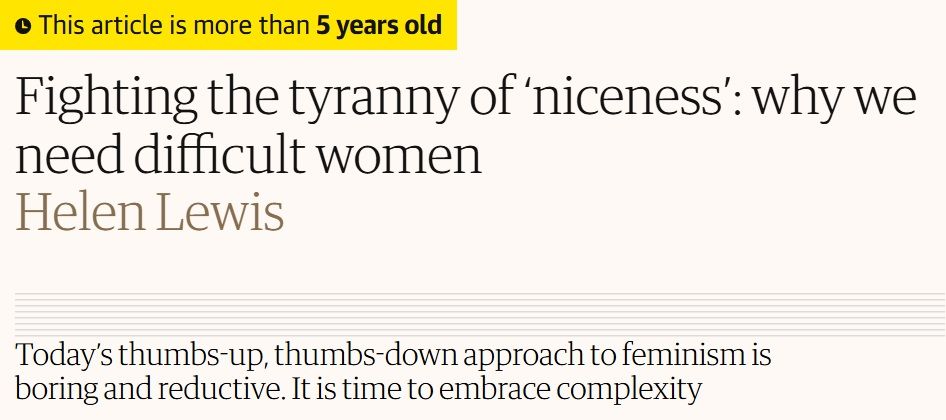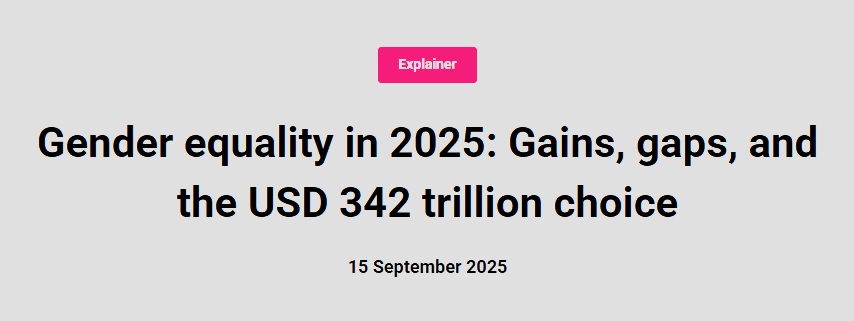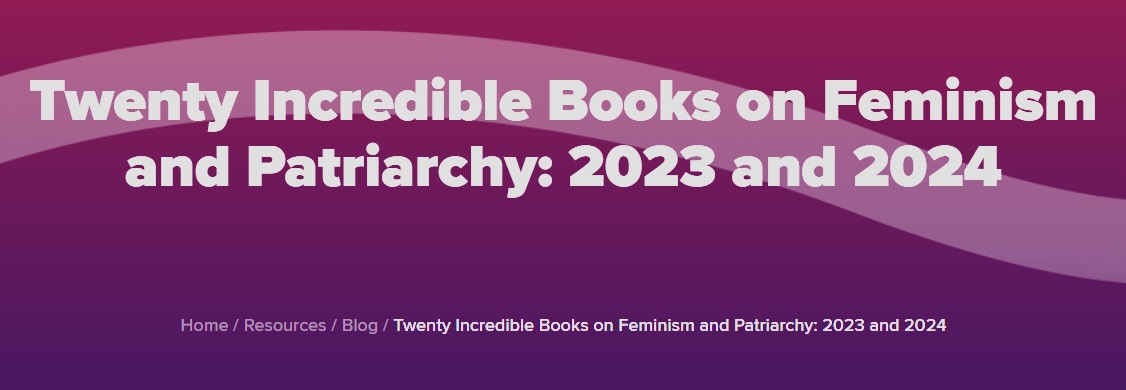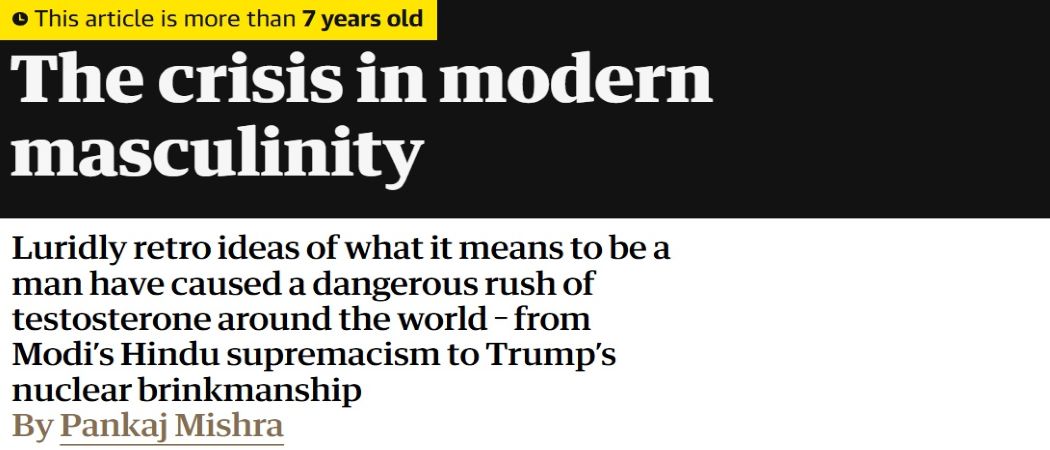Fighting the Tyranny of 'Niceness': Why We Need Difficult Women

This article critiques the expectations of 'perfection' and 'likability' in contemporary feminism, calling for recognition of the complexity and contradictions within feminism, and embracing those 'difficult women' who are nonconformist, hard to categorize, but drive change.
Related Topics
Helen Lewis argues in this article that feminism must accommodate contradictions and complexity, refusing to reduce the movement to a binary logic of “like or dislike.” She advocates for embracing those imperfect, hard-to-categorize, even controversial “difficult women,” because it is precisely these individuals who drive social change.
Core Arguments and Critical Dimensions
“Difficult” Means Complex: Lewis points out that historically, feminists have often been controversial, their views may have been untimely, but precisely because of this they were able to challenge the existing order. She criticizes the over-idealization of “role models” in contemporary feminism, believing this obscures the political nature and struggle of the movement.
Against the “Tyranny of Niceness”: Society’s expectations of women are to be gentle, compliant, and uncontroversial. Lewis emphasizes that this “culture of likability” suppresses women’s anger and agency, making feminism harmless and powerless.
Rejecting Simplification and Cancel Culture: The article critiques the tendency of “cancel culture” to purge within feminism, believing that cutting down complex figures wholesale weakens the historical depth and strategic diversity of the movement.
The Challenges and Rifts of the Fourth Wave: Lewis analyzes the rise and predicament of fourth-wave feminism, pointing out that social media has brought both energy and division, with conceptual conflicts between younger generations and their predecessors, especially regarding gender fluidity and political strategies.
From Anger to Action: She calls for transforming anger into political force to drive structural change, rather than remaining in emotional expression or symbolic protest.
The Intersection of History and Reality
Lewis cites multiple historical figures from Marie Stopes to Jayaben Desai, emphasizing that the “flaws” and “controversies” of feminists are part of their political life. She believes that true feminist history should not be a gallery of heroes, but a collective memory full of struggle, failure, and complexity.
This article was summarized and written by Copilot based on The Guardian article “Fighting the tyranny of ‘niceness’: why we need difficult women.”
Related Articles

Beijing+30: A Critical Moment for Global Women's Rights
2025 marks the 30th anniversary of the Beijing Declaration and Platform for Action. Despite progress, 24% of countries report backlash on gender equality, and 10% of women still live in extreme poverty. This is a critical moment to renew commitments.

Breaking Free: Why 'Equality' Is a Patriarchal Lie
New book 'Breaking Free' reveals how 'equality' is a racist, patriarchal ideal that keeps women and marginalized communities chasing an unattainable goal. True liberation requires not equality, but freedom.

The Crisis in Modern Masculinity
This article traces the historical evolution of modern masculinity, revealing the politicization and pathologization of the 'strong man' fantasy on a global scale, and critiques how patriarchy shapes oppressive roles for both men and women.
Support Our Work
If this content has been helpful to you, please consider supporting us to continue curating quality feminist resources
☕ Buy me a coffeeComments & Discussion
Share your views and feelings about this article
Join the Discussion
Share your views and feelings about this article
Loading comments...